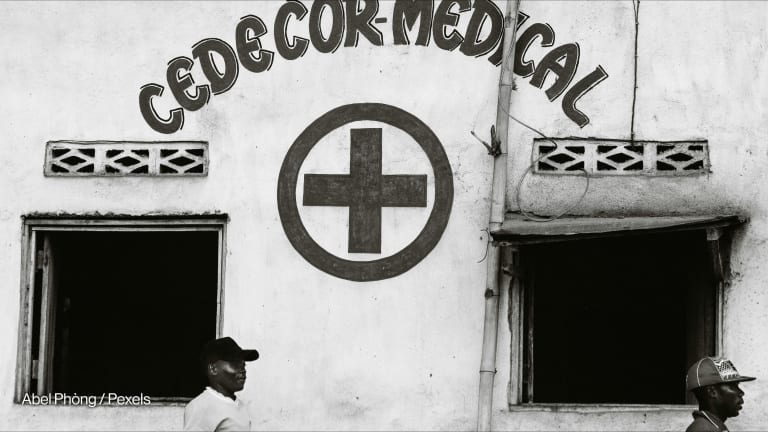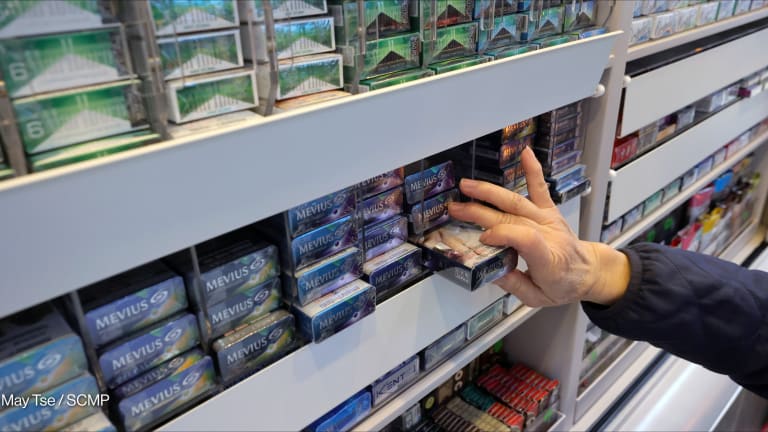
It was the fall of 2024, and Jama, 37, had been chewing Khat that day, as he often did.
Khat, an innocuous-looking, evergreen shrub that grows predominantly in East Africa, contains stimulant properties that can lead to dependency. Jama, who originally hails from a rural town about 20 kilometers from Somaliland’s capital Hargeisa, described how his addiction to the substance had escalated over time.
Through a translator, he shared with Devex how the dependence on Khat affected his daily life, leading to disrupted sleep patterns, financial strain, and impulsive behavior.
Jama recounted spending most of his earnings from sporadic construction work on Khat. He reported becoming increasingly irritable and experiencing episodes of conflict with those around him.
When they caught Jama swimming at the bottom of a well, his siblings worried that his reckless actions could eventually kill him, and they persuaded him to receive mental health treatment. After more than a decade of addiction, Jama’s mental health had taken a turn for the worse. Hallucinations, sleeplessness, and violent behavior were daily occurrences, he said. At first, he resisted his siblings, but eventually agreed to treatment and has been in inpatient care in a Hargeisa hospital for the past two months.
An innovative approach to fund mental health
Jama’s mental health treatment is possible because of an innovative financing method that Somaliland has developed in recent years. The country, a small territory wedged between Somalia and Ethiopia, whose independence was unilaterally declared in 1991 and isn’t recognized by any United Nations member states, has decided to tax Khat to support its nascent mental health infrastructure. Khat, which is legal in Somaliland as well as its neighboring countries — and regularly imported into the country from neighboring Ethiopia — is now generating revenue that supports patients with mental health struggles, including but not limited to those coming from the drug itself.
Somaliland has a heavy burden of mental illness, said Yakoub Aden Abdi, a consultant with the World Health Organization who helped set up the country’s mental health program. Post-war trauma, climate change, and poverty are largely to blame.
What is Khat?
Khat (Catha edulis), also known as bushman's tea, is a flowering plant native to eastern and southeastern Africa. Cultivated by farmers, its leaves are sold on the market to be chewed as a recreational stimulant. The world's largest consumers are eastern Africans, particularly Somalis, and nearby Yemen, with the largest producers/exporters being Ethiopia and Kenya.
Khat contains the alkaloid cathinone, a stimulant that causes greater sociability, excitement, mild loss of appetite, and mild euphoria. Since 1980, the World Health Organization has classified khat as a “drug of abuse” that can produce psychological dependence, although WHO does not consider khat addiction to be a serious global problem. Its production, sale, and consumption are all fully legal — or not mentioned in a legal context at all — in the nations where its use is culturally significant, including Djibouti, Ethiopia, Kenya, Somalia, Sudan, Uganda, and Yemen.
The idea of a health tax or “sin tax” on Khat, as this model is sometimes called in the health financing sector, emerged about six years ago as a grassroots effort led by civil servants, said Hamdi Issa, Somaliland-based senior officer at United for Global Mental Health, a nonprofit organization focused on mental health issues.
People saw insufficient funding coming from the state and international donors for mental health and pleaded with the country’s minister of finance to find a solution, eventually leading to the idea of levying a tax on Khat, said Abdi. The process included getting Khat traders on board with the plan, and it worked, he said.
More work to be done
The taxation program started in 2021 at about 200 Somali Shillings ($0.35) per kilogram of Khat, raising about $800,000 in the first year. It was eventually increased to 500 Shillings per kilo, raising $2 million a year, according to Abdi.
So far, the funds have been spent on the 316 professionals who currently work in Somaliland’s mental health program, including psychiatrists, general physicians, nurses, and administrative staff. It was also used to refurbish existing hospital infrastructure and to start building a few new hospitals, Abdi said.
Setting up a mental health program in a country where one had never existed before, and where mental health care had been the sole remit of traditional healers, meant rethinking controversial, ineffective, or sometimes harmful practices.“Before [the mental health program], many people were chained. They were confined to their homes, some patients were staying there for years without getting any proper diagnosis and treatment,” said Abdi. Now patients in mental health facilities don’t get chained, however, the capacity of state mental health hospitals isn’t enough to accommodate everyone who needs care, and a lot of people remain chained at home or in privately owned residential homes, he said.
When Jama was admitted to the hospital, he was diagnosed with drug-induced psychosis and put on the antipsychotic drug risperidone. Now, Jama keeps busy with chores like making beds in the morning and picking up plates after meals. He also feels better physically and mentally and expects to be discharged soon.
While the Khat taxation model has allowed for a shift in the way mental health is treated in Somaliland, it’s not solving all issues. First, more funding is needed, as the Khat taxation model is not entirely scalable. “We need maybe three times more than that,” said Abdi.
Secondly, the inflow of Khat is dependent on relations with Ethiopia, which can always change, said Abdi. In order to decouple mental health financing from the Khat trade, Somaliland would need to have donors matching the amount of funding currently coming through, and subsequently include mental health in the government’s regular health budgeting, Abdi and UGMH’s Issa said.
“The safest [solution] is that the ministry, the government, takes the responsibility and finances the health care system, including mental health,” said Abdi. But Somaliland’s financial capabilities are limited, and a sizable share of its resources, including for the health care system, is provided by international donors.
So far, no donor has come forward with funds or with a proposal to complement Khat tax income to continue supporting mental health care in the country, Abdi said.
Sarah Kline, CEO and co-founder of United for Global Mental Health, said that one of the strengths of the Khat taxation model is that it’s locally owned and managed rather than dependent on international aid. On the flip side, “it is not sufficient on its own to fully cover budgets,” she said.
According to Issa, the Somaliland mental health program “shows innovation, and it shows when people work together with government, in the private sector, grassroots movements, it really can bring about a change.” But, she added: “I also think it's really important that this is also being supported by people who have the financial capabilities to provide more, so the partners, the donors.”
Visit Accelerating Action — a series highlighting pathways for funding NCD prevention and control, spotlighting innovative financing models and cross-sector collaborations.
This content is produced in partnership as part of our Accelerating Action series. To learn more about this series, click here.









